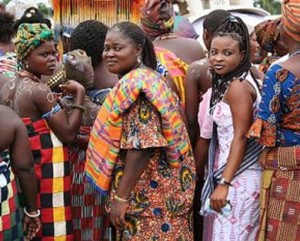Women losing quest for employment and wage parity – ILO
 The Ghana Trade Union Congress’s 40 per cent quota for women has been cited by the International Labour Organization (ILO) as one of positive trends worldwide that have improved the participation of women in trade unions.
The Ghana Trade Union Congress’s 40 per cent quota for women has been cited by the International Labour Organization (ILO) as one of positive trends worldwide that have improved the participation of women in trade unions.
The ILO on the occasion of International Women’s Day 2016, says the gender gap in employment has closed by only 0.6 percentage points since 1995, and women are losing the quest for equality in the world of work.
A new report by the international agency which examined 178 countries, makes the conclusion that inequality between men and women still persists across a wide spectrum of the labour market globally.
According to the report “Getting to Equal by 2030: The Future is Now”, it will take more than 70 years to close the gender wage gap completely, going by current trends.
“Over the last two decades, women’s significant progress in educational achievements has not translated into a comparable improvement in their position at work. In many regions in the world, in comparison to men, women are more likely to become and remain unemployed, have fewer chances to participate in the labour force and – when they do – often have to accept lower quality jobs”, the report says.
Between 1995 and 2015, the global female labour force participation rate decreased from 52.4 to 49.6 per cent, while for men it decreased from 79.9 to 76.1 per cent.
According to the ILO, the current global unemployment rate is 5.5 per cent for men and 6.2 per cent for women, and women are more likely to be unemployed than men.
“Worldwide, the chances for women to participate in the labour market remain almost 27 percentage points lower than those for men”, the ILO says.
Aside the gender gap in employment, the report says inequality is also very prevalent in wages – there is a gender wage gap of 23 per cent, meaning that women earn 77 per cent of what men earn.
The ILO says the wage gap cannot be explained by differences in education or age alone, but it is also due to discrimination, undervaluation of the work that women do and the skills required in female-dominated sectors, and the need for women to take career breaks to attend to additional care responsibilities such as maternity.
The ILO noted that the wage disparity has significant disadvantage and negative impact for women in their later years, in terms of pensions coverage and the social protection gap.
The ILO says an integrated policy framework is needed for women’s access to better jobs and wages and a harmonization between work and family life.
Although maternity is a significant contributor to the gender wage gap, at least 76 countries worldwide including Ghana, do not have statutory provisions entitling fathers to go on a paternity leave after the birth of a child.
By Emmanuel Odonkor
